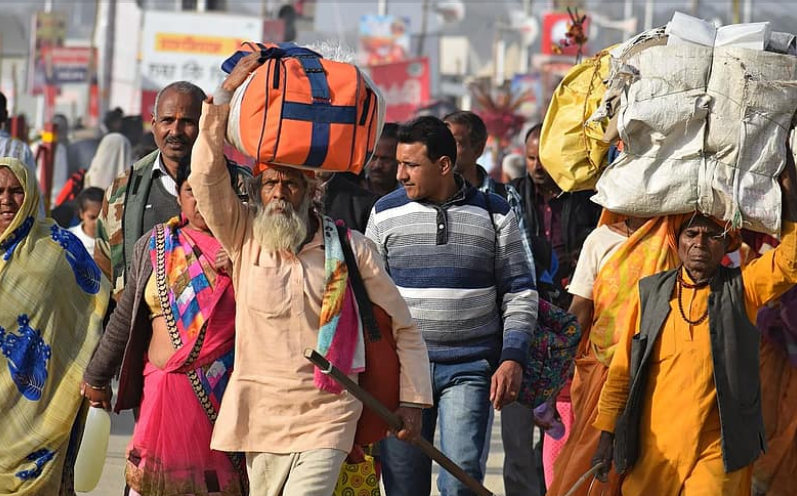Introduction
Indian workers abroad have been the backbone of the country’s remittance economy, contributing significantly to India’s GDP while supporting their families back home. However, their journeys are often marked by hardships, ranging from precarious working conditions to exploitative labor practices. Despite governmental efforts and international frameworks, the plight of Indian workers abroad remains a complex issue with no easy solutions.
1. The Global Presence of Indian Workers
India has one of the largest diasporas in the world, with millions of workers employed in sectors like construction, healthcare, technology, and domestic services across the Middle East, Europe, Southeast Asia, and the Americas.
- Middle East Dominance: Gulf Cooperation Council (GCC) countries host over 10 million Indian workers, primarily in low-skilled labor sectors.
- Highly Skilled Migration: Indian IT professionals and healthcare workers dominate in developed nations, but they too face challenges like visa restrictions and job insecurity.

2. Challenges Faced by Indian Workers Abroad
Indian workers, particularly those in low-skilled jobs, face numerous difficulties that make their lives abroad arduous.
a. Exploitative Labor Practices
- Kafala System in Gulf Countries: This sponsorship system ties workers to their employers, restricting their mobility and leaving them vulnerable to exploitation.
- Wage Disparities: Workers often receive lower wages than promised and sometimes face non-payment for months.
b. Unsafe Working Conditions
- Many laborers work in extreme climates without adequate protective measures.
- Reports of workplace accidents and fatalities are common, particularly in construction industries.
c. Social Isolation and Mental Health Issues
- With little time off and limited social networks, many workers suffer from depression and anxiety.
- Domestic workers often face abuse, harassment, and long hours without respite.
d. Lack of Legal Protection
- Migrant workers have limited access to legal recourse, often due to language barriers, lack of awareness, or restrictive local laws.
3. The Role of Remittances
Indian workers contribute billions in remittances annually, which serve as a lifeline for millions of families.
- Economic Contribution: In 2023, India received over $90 billion in remittances, primarily from workers in the Middle East and North America.
- Dependency on Remittances: Many rural families rely entirely on money sent from abroad for basic necessities, education, and healthcare.
4. Government Efforts to Address Challenges
The Indian government has initiated several measures to support workers abroad:
- Pravasi Bharatiya Bima Yojana: A mandatory insurance scheme for Indian workers going abroad.
- Skill Development Programs: Initiatives like Pravasi Kaushal Vikas Yojana aim to enhance the skills of potential migrants.
- Diplomatic Interventions: Efforts to negotiate labor agreements with host countries to ensure fair treatment.
- eMigrate System: A digital platform to streamline overseas recruitment and monitor employment contracts.
5. Limitations of Existing Efforts
Despite these initiatives, challenges persist due to the following reasons:
- Implementation Gaps: Poor enforcement of agreements and inadequate monitoring mechanisms.
- Bureaucratic Hurdles: Delays in grievance redressal discourage workers from seeking help.
- Focus on Low-Skilled Labor: Policies often overlook issues faced by high-skilled migrants, such as visa uncertainties.
6. The International Perspective
Host countries often prioritize their labor needs over migrant welfare.
- Restrictive Policies: Visa restrictions and quotas limit opportunities for migrant workers.
- Economic Dependence: While host countries benefit from cheap labor, they seldom invest in safeguarding migrants’ rights.
7. A Closer Look: Gulf Countries
The Middle East stands out as both a significant destination for Indian workers and a hotspot for labor issues.
- Major Employment Hub: Over 50% of Indian migrant workers are employed in GCC nations.
- Reforms and Challenges: Recent reforms in countries like Qatar and Saudi Arabia have abolished or eased the Kafala system, but implementation remains uneven.
8. Stories of Resilience
Amidst these challenges, many Indian workers abroad display remarkable resilience.
- Success Stories: Skilled professionals have made significant contributions, earning recognition in their respective fields.
- Grassroots Advocacy: Community organizations and NGOs often step in to support migrant workers.
9. Long-Term Solutions: Bridging Gaps
Addressing the plight of Indian workers abroad requires a multi-faceted approach.
a. Strengthening Bilateral Agreements
- India should negotiate comprehensive agreements with host countries to ensure labor protections.
- Establish mechanisms for dispute resolution and better monitoring.
b. Improved Pre-Departure Training
- Equip workers with legal, financial, and cultural knowledge to navigate challenges abroad.
c. Better Grievance Redressal Systems
- Set up dedicated helplines and legal aid centers in host countries.
- Promote awareness among workers about their rights and resources available to them.
d. Focus on Reintegration
- Develop programs to support workers returning home, including skill recognition, financial assistance, and psychological support.
10. Civil Society’s Role
NGOs and community organizations play a critical role in advocating for and supporting migrant workers.
- Awareness Campaigns: Educating workers about risks and rights.
- Rescue and Rehabilitation: Intervening in cases of abuse and providing immediate support.
11. Conclusion
The plight of Indian workers abroad is a reflection of global inequalities, systemic exploitation, and governance challenges. While there are no easy solutions, concerted efforts by governments, international organizations, and civil society can help mitigate the hardships faced by these workers.
As India continues to strive for global leadership, protecting its citizens abroad must remain a priority. Ensuring the welfare of migrant workers is not just an economic or diplomatic imperative; it is a matter of upholding human dignity. For millions of Indians working away from home, this could be the first step toward a life of hope, security, and respect. ALSO READ:- Rozgar Mela 2024: PM Modi Highlights Record Government Job Recruitment in 18 Months